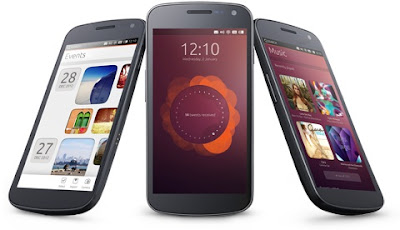Despite the rapid advancement of popular smartphones, there are still certain functions that just don't translate well from a desktop or laptop computer to a phone. In many cases, this is simply because a given website or program hasn't been given the proper attention to be designed in a mobile-friendly manner, and often the result is as simple as an app or a new version of a website.

For example, if you're an online gamer you may be familiar with the website arcade betfair. It's a popular online with an enormous variety of games and live betting forums, allowing users to create accounts and put actual cash on the line in everything from arcade games, to sports outcomes, to traditional casino activities. Truth be told, this site is actually fairly clean and practical when accessed on a mobile phone or tablet - however, in order to simply make the experience more user-friendly, the folks at Betfair have also invented a number mobile-specific apps to allow users the best possible experience.
This is merely one example of how independent sites and developers are taking steps to bridge the gap between computers and mobile devices, and it's happening more and more every day. But earlier this month, as noted at droid-life, we may have quietly received one of the bigger developments in bridging this gap for the smartphone community. In early October this year, Ubuntu released its Ubuntu Touch mobile version, calling it a "true mobile release" and providing a unique and potentially groundbreaking new OS for smartphone use.
Ubuntu Touch is still in its early stages of exposure and perhaps even development, but there are some indications of its significance for the mobile market. To quote leading engineer Rick Spencer from the same Droit Life article, "Ubuntu Touch 13.10 is a full server-grade OS that offers a mobile experience and is lean enough to support mobile devices, kicking off a new era in mobile security and computing convergence."
More specifically, the Ubuntu Touch SDK features a combination of basic apps for daily use and unprecedented potential for users to create apps within the OS. Its selection of core apps includes basic utilities, music, a few games (sudooku and letter drop), and the basic developer tools Terminal and File Manager. And finally, its display and functionality are equipped to be entirely customizable, allowing each user to create the optimal mobile phone OS experience.
The limits of Ubuntu Touch and the development of the concept from here are difficult to determine, but it certainly seems as if this release is a major step in continuing to bridge the gap between computer and smartphone capabilities.

For example, if you're an online gamer you may be familiar with the website arcade betfair. It's a popular online with an enormous variety of games and live betting forums, allowing users to create accounts and put actual cash on the line in everything from arcade games, to sports outcomes, to traditional casino activities. Truth be told, this site is actually fairly clean and practical when accessed on a mobile phone or tablet - however, in order to simply make the experience more user-friendly, the folks at Betfair have also invented a number mobile-specific apps to allow users the best possible experience.
This is merely one example of how independent sites and developers are taking steps to bridge the gap between computers and mobile devices, and it's happening more and more every day. But earlier this month, as noted at droid-life, we may have quietly received one of the bigger developments in bridging this gap for the smartphone community. In early October this year, Ubuntu released its Ubuntu Touch mobile version, calling it a "true mobile release" and providing a unique and potentially groundbreaking new OS for smartphone use.
Ubuntu Touch is still in its early stages of exposure and perhaps even development, but there are some indications of its significance for the mobile market. To quote leading engineer Rick Spencer from the same Droit Life article, "Ubuntu Touch 13.10 is a full server-grade OS that offers a mobile experience and is lean enough to support mobile devices, kicking off a new era in mobile security and computing convergence."
More specifically, the Ubuntu Touch SDK features a combination of basic apps for daily use and unprecedented potential for users to create apps within the OS. Its selection of core apps includes basic utilities, music, a few games (sudooku and letter drop), and the basic developer tools Terminal and File Manager. And finally, its display and functionality are equipped to be entirely customizable, allowing each user to create the optimal mobile phone OS experience.
The limits of Ubuntu Touch and the development of the concept from here are difficult to determine, but it certainly seems as if this release is a major step in continuing to bridge the gap between computer and smartphone capabilities.

